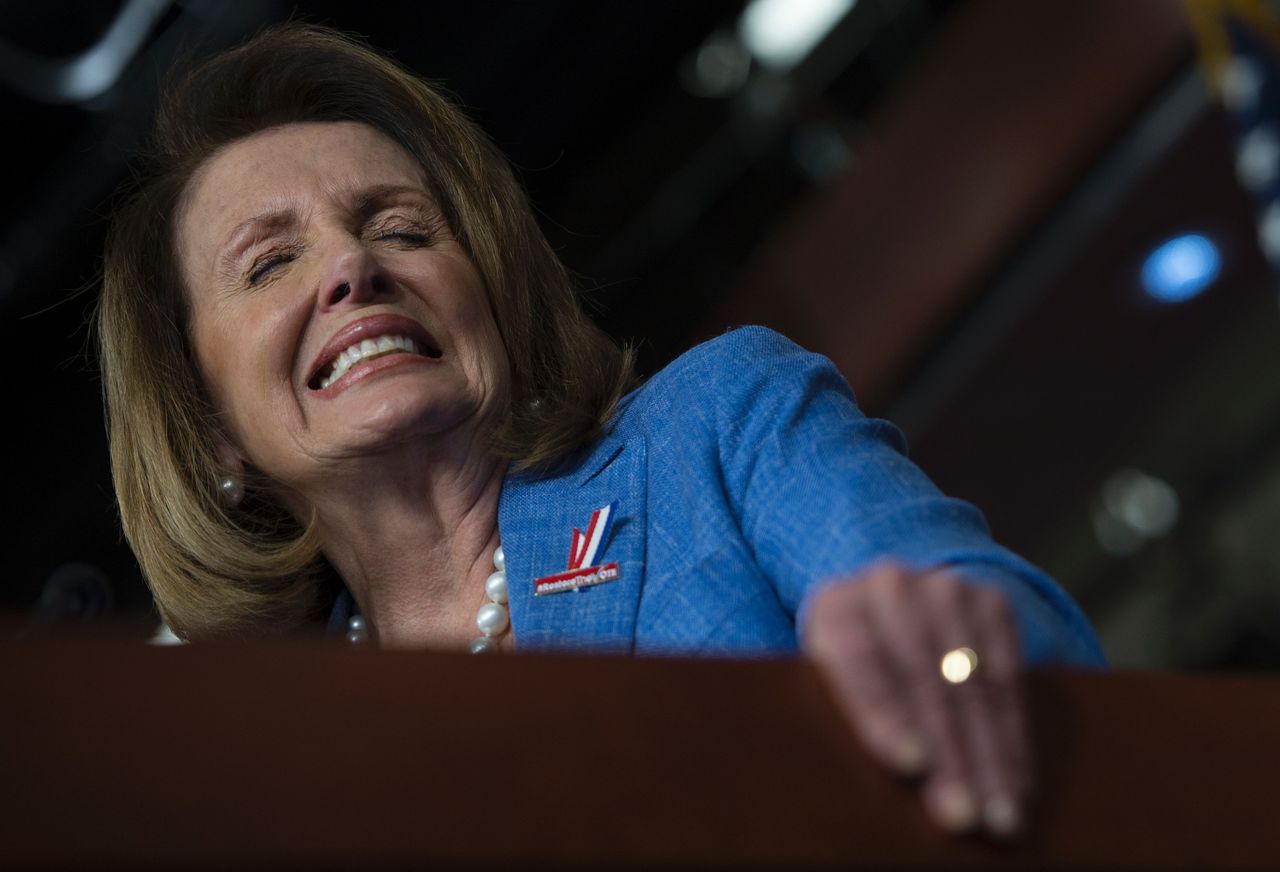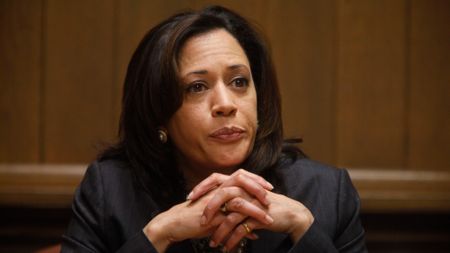Why the Democrats should temper their 2018 optimism
The GOP is in bad shape. That doesn't mean Democrats have the 2018 midterms in the bag.


The latest revelations about the Trump campaign's possible collusion with Russia, including the arrest of former campaign chairman Paul Manafort and the plea deal agreed to by former foreign policy adviser George Papadopolous, are big stories on their own terms. But the worsening scandal also threatens to collapse the GOP's political position heading into this week's elections, as well as the 2018 midterms.
A party that can't seem to get much of anything done and just released a tax plan it clearly doesn't have the votes for can ill afford an endless series of news cycles dominated by questions about whether the president and his associates secretly worked with Russia to throw a national election. With Republican morale plummeting into previously unimagined subterranean caverns, the latest crisis could be serious trouble for Virginia's Republican gubernatorial candidate Ed Gillespie — who already trails Democrat Ralph Northam — and the GOP's chances of holding onto the House and Senate next year.
While Democrats are right to be optimistic about the next two elections, they shouldn't bank on taking back either branch of Congress just yet.
Subscribe to The Week
Escape your echo chamber. Get the facts behind the news, plus analysis from multiple perspectives.

Sign up for The Week's Free Newsletters
From our morning news briefing to a weekly Good News Newsletter, get the best of The Week delivered directly to your inbox.
From our morning news briefing to a weekly Good News Newsletter, get the best of The Week delivered directly to your inbox.
First, the good news for Dems. Even before last week's indictments and revelations, President Trump was performing one of his monthly swan dives in public opinion polls. He'd just hit a new low of 33 percent in the gold standard Gallup tracking poll (he has since mysteriously rebounded) — part of a pattern in which the president's numbers bounce around but arrive reliably at a fresh nadir every few months. He has not been north of 39 percent since June, and the noise in the polling has trended downward over time.
Because midterm election results are correlated with the president's popularity — the only presidents whose parties have gained seats in the midterms since 1970 have been at the height of their popularity (George W. Bush in 2002 and Bill Clinton in 1998) — President Trump's deteriorating position in the polls should absolutely terrify GOP elites. He seems unlikely to be within 20 points of the approval ratings that delivered those midterm upsets to his predecessors. At this rate, he'll be lucky to be within 20 percent of his current rating.
Worse for the GOP is that at this point in the 2006, 2010, and 2014 midterm cycles, the opposition party was doing somewhat or even substantially worse in the polls. Democrats actually led the generic ballot in November of 2013 and November 2009 only to get obliterated a year later. The reason was pretty straightforward: The party's fortunes sank as President Obama's favorability numbers plummeted over the course of the following year. By the time the midterms took place, the Affordable Care Act had been passed, but its benefits wouldn't be apparent to voters for years.
But President Trump and his Congressional allies start out with a unique disadvantage here — Obama was broadly popular in the calendar years following his election and re-election and at least had legislative achievements to campaign on. Trump, on the other hand, began his term opposed by a majority of Americans and has frittered away what little good will he had with independents while accomplishing nothing much other than kicking Neil Gorsuch past an empty net, an achievement that also required rewriting the Senate's rules. The toxicity of Congress is also leading some House Republicans to announce their retirements, blunting the substantial advantage enjoyed by incumbents in a number of districts.
Yet House Minority Leader Nancy Pelosi (D-Calif.) shouldn't be eyeing the speaker's gavel just yet.
The party leading the generic ballot has performed worse than the final polling average in several midterm elections since 2000. In 2010, even in a wave year that delivered 63 seats to the GOP, the Republicans lost almost 3 percentage points off their final national polling average. In 2006, even while taking the House, the Democrats lost almost 4 points from the election eve number. Of course, this hasn't always been the case: Republicans outperformed their expectations by almost 3 points in 2002, when George W. Bush had a 68 percent approval rating, and in 2014, when Barack Obama was close to the worst numbers of his entire presidency.
The lesson for Democrats should be that their final numbers may not be as rosy as the pre-election polling might indicate. In political science, a curiosity called "Fenno's Paradox" may explain some of this: Americans tend to disapprove of the performance of Congress even while liking their own representative. Big gains for the opposition party may ultimately involve the president's voters staying home because they are demoralized, rather than millions of Americans switching their votes from one election to the next. In 2014, fewer than 37 percent of eligible voters turned out to cast a ballot, and we'll never know what the other 63 percent would have done. All we know is they didn't care enough to show up.
This year, it's the Democrats who have opened up an enormous lead in generic Congressional ballot polling, leading the RealClearPolitics polling average by 10 percent. If historical patterns hold up, and President Trump's approval rating continues its gradual descent into the 20s, Democrats should add a few points to that lead as the elections approach, especially if Republicans succeed in enacting one of their detested policy proposals into law. And while polls are not the word of God, generic balloting has generally been predictive of outcomes, even this far out.
You might be thinking, who cares what the exact number is? A win is a win is a win, and whether it's 12 percent or 8 percent, Democrats are looking good. Yet small fluctuations in these polling numbers are even more important than they might seem. The sweeping power achieved by the GOP in 2010 allowed them to draw Congressional district maps unopposed in a number of important swing states, including Wisconsin, Pennsylvania, Virginia, Ohio, and North Carolina. This ingenious plan allowed the GOP to hold onto the House despite losing the national popular vote in 2012, and has given them a greater share of power than they should have achieved according to their vote totals in every election since. The clustering of Democratic voters also poses a problem for Democratic challengers, since so many districts are uncompetitive to begin with. Analysts who have studied the question believe that the combination of gerrymandering and clustering means that Democrats might need to win the national House popular vote by at least 7 percent, or even as much as 13 percent, to have a real chance of taking the House.
That's a tall order, even if the president deliberately steps in it every day from now to next November. Democrats are going to have to remain unified for another long year, recruit quality candidates in districts that in some cases didn't even have a challenger last year, and craft a winning national policy message that can be heard over the sound of whatever grenade President Trump sets off every morning.
Sign up for Today's Best Articles in your inbox
A free daily email with the biggest news stories of the day – and the best features from TheWeek.com
David Faris is an associate professor of political science at Roosevelt University and the author of It's Time to Fight Dirty: How Democrats Can Build a Lasting Majority in American Politics. He is a frequent contributor to Informed Comment, and his work has appeared in the Chicago Sun-Times, The Christian Science Monitor, and Indy Week.
-
 The JFK files: the truth at last?
The JFK files: the truth at last?In The Spotlight More than 64,000 previously classified documents relating the 1963 assassination of John F. Kennedy have been released by the Trump administration
By The Week Staff Published
-
 'Seriously, not literally': how should the world take Donald Trump?
'Seriously, not literally': how should the world take Donald Trump?Today's big question White House rhetoric and reality look likely to become increasingly blurred
By Sorcha Bradley, The Week UK Published
-
 Will Trump's 'madman' strategy pay off?
Will Trump's 'madman' strategy pay off?Today's Big Question Incoming US president likes to seem unpredictable but, this time round, world leaders could be wise to his playbook
By Sorcha Bradley, The Week UK Published
-
 Democrats vs. Republicans: who are the billionaires backing?
Democrats vs. Republicans: who are the billionaires backing?The Explainer Younger tech titans join 'boys' club throwing money and support' behind President Trump, while older plutocrats quietly rebuke new administration
By Harriet Marsden, The Week UK Published
-
 US election: where things stand with one week to go
US election: where things stand with one week to goThe Explainer Harris' lead in the polls has been narrowing in Trump's favour, but her campaign remains 'cautiously optimistic'
By Harriet Marsden, The Week UK Published
-
 Is Trump okay?
Is Trump okay?Today's Big Question Former president's mental fitness and alleged cognitive decline firmly back in the spotlight after 'bizarre' town hall event
By Harriet Marsden, The Week UK Published
-
 The life and times of Kamala Harris
The life and times of Kamala HarrisThe Explainer The vice-president is narrowly leading the race to become the next US president. How did she get to where she is now?
By The Week UK Published
-
 Will 'weirdly civil' VP debate move dial in US election?
Will 'weirdly civil' VP debate move dial in US election?Today's Big Question 'Diametrically opposed' candidates showed 'a lot of commonality' on some issues, but offered competing visions for America's future and democracy
By Harriet Marsden, The Week UK Published



